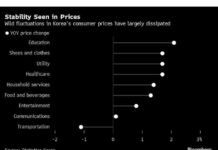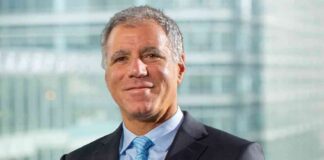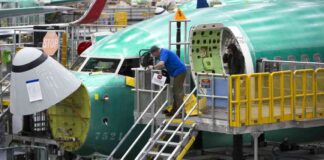Orsted, a major renewable energy developer, recently announced a significant financial setback due to delays in its offshore wind farm project in the US and the cancellation of a green hydrogen plant in Sweden. The company reported an impairment of over $500 million in the second quarter of the year, highlighting the challenges faced by CEO Mads Nipper’s turnaround plan.
The Impacts of the Delay on Orsted
The impairment of $500 million is a substantial hit for Orsted, signaling that the company’s efforts to revitalize its operations are still a work in progress. The delay in the Revolution Wind project, located off the coast of Connecticut and Rhode Island, contributed to the overall financial impact. The setback underscores the complexities and uncertainties associated with large-scale renewable energy projects, especially in the nascent US offshore wind market.
President Joe Biden’s ambitious plans to decarbonize the American power grid have placed a spotlight on the importance of offshore wind development. However, Orsted’s experience serves as a cautionary tale, with delays and supply chain issues leading to unsustainable costs and project cancellations. The unpredictability of costs in the early stages of such projects poses a significant challenge for developers in the industry.
CEO Mads Nipper expressed frustration with the situation, acknowledging that risk is inherent in project development. The US market, in particular, has proven to be challenging for Orsted and other developers, with unforeseen obstacles impacting project timelines and financial outcomes. The uncertainty surrounding these projects has contributed to a drop in Orsted’s stock value, reflecting investor concerns about the company’s future prospects.
Despite the setbacks, Orsted remains committed to achieving its financial targets for the year, excluding any new partnership agreements and cancellation fees. The company’s core business strength has been instrumental in weathering the challenges posed by the wind industry, offering some reassurance to investors amidst the turbulence in the market.
Looking Ahead: Challenges and Opportunities
Orsted’s experience highlights the need for careful planning and risk management in the renewable energy sector, especially in emerging markets like the US offshore wind industry. The company’s efforts to recover from the recent setbacks will require sustained operational excellence and strategic decision-making to regain investor confidence.
Analysts have noted that Orsted will need to demonstrate consistent performance and operational delivery to rebuild trust among investors following the recent incidents in its US offshore wind portfolio. The ongoing impairments underscore the ongoing challenges facing the company and the broader renewable energy sector, emphasizing the need for resilience and adaptability in the face of uncertainty.
The delay in the construction of the onshore substation for the US wind project serves as a reminder of the complexities involved in large-scale renewable energy projects. The discovery of soil contamination at the construction site has led to additional work and a one-year delay in project completion, highlighting the importance of thorough due diligence and risk assessment in project planning.
The cancellation of the FlagshipONE green hydrogen project in Sweden further underscores the challenges of securing buyers for renewable energy products in a competitive market. Despite the initial promise of the project, Orsted was unable to find sufficient demand for the output from the facility, underscoring the need for robust market analysis and strategic partnerships in the green energy sector.
In Conclusion
Orsted’s $500 million impairment serves as a cautionary tale for the renewable energy industry, highlighting the risks and challenges associated with large-scale projects in emerging markets. The company’s experience underscores the importance of diligent planning, risk management, and market analysis in navigating the complexities of the renewable energy sector.
As Orsted continues its efforts to recover from the setbacks in its offshore wind projects, the company will need to demonstrate resilience, adaptability, and operational excellence to regain investor trust and achieve its financial targets. The challenges faced by Orsted offer valuable lessons for other renewable energy developers, emphasizing the need for strategic decision-making and proactive risk management in a rapidly evolving industry.






















